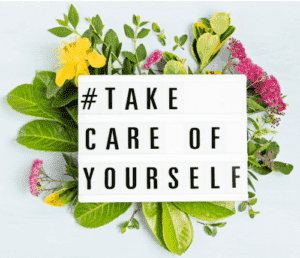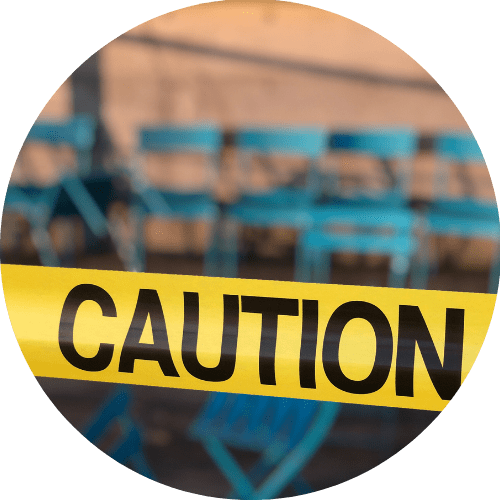It’s no secret that as a society we are all under a ridiculous amount of stress, and our own self-care often suffers serious neglect. What we have seen in our practice, tracking the remote scales of clients and patients who have graduated from our weight loss program, is that if someone is stumbling and their weight is headed in the wrong direction, when we reach out to support them, what we hear, nearly 100% of the time is that they are dealing with stress of some sort or another – family/relationship issues, financial, job, health, the state of the world…

Here are some ideas on how to identify stress and increase self-awareness, self-compassion, and ultimately, self-care. This is a whole lot of “self,” something many of us are very adept at pushing to the side as we go about our day-to-day lives.
Stress, even good stress, can cause physical, behavioral, and emotional symptoms. Some common signs to look out for: physical symptoms may include things like headaches, insomnia, back and neck pain, nausea, and cold sweats. Behavioral warning signs can be things like nail biting and picking, teeth grinding, avoidance, changes in eating and exercise habits and repetitive, obsessive thoughts. Emotional indicators can be things like worry, irritability, anger, difficulty concentrating and memory issues. Many of us have lived with these symptoms for so long that we often don’t even “see” them anymore, merely accepting that this is a “normal” way to live. It is not.
That brings us to self-awareness. Check in with yourself periodically – daily would be ideal, but even every few days is better than nothing. If you need a jumping off point, here are some questions to ask yourself:
- How am I feeling?
- How am I sleeping?
- Is my jaw clenched? Am I grinding my teeth?
- When was the last time I drank some water? (Coffee does not count!)
- How am I holding myself? Are my shoulders up by my ears, am I hunching over?
- Do I feel more easily annoyed lately?
- Am I having trouble concentrating?
- Have I been binging or allowing carb creep? Am I overly restricting food or obsessing about food and/or my diet?
- Have I made time to exercise? Am I over-exercising?
- Have I been picking or biting at my nails or skin?
- Is my heart racing for no reason?
- Do I feel restless?
- Am I hyperfixated on something or having trouble concentrating or remembering things?
You can run down this whole list in about a minute or less, and it will give you a basic inventory on your status and an idea on how you’re handling your current stress level.
If you are experiencing stress, practicing a little bit of self-care will go a long way! Our tendency is to brush it off and say, “I can handle it.” Yes, you can. But you will be able to handle it a whole lot better if you practice some self-care. Trust me.
Self-compassion is probably the most difficult to implement, but a good place to start is by treating ourselves the way we treat our loved ones. If someone you care about came to you and said, “I’m super stressed, not sleeping, my thoughts are racing and I can’t stop eating All. Of. The. Crap!” it is highly doubtful that you would slap this beloved person on the back and say, “You’re fine, just get back to work.” Why is it so difficult to be compassionate and gentle with ourselves, to treat ourselves with the same level of kindness we show a dear friend?
Be fair and tender with yourself. Recognize negative self-talk, reframe it and let it go. You are worthy of your own kindness. Let me say that again for those who think this doesn’t apply to them and will ignore these words: You are worthy of your own kindness. Accept yourself for who you are and understand that you may need more and different self-care than someone else, but you are no less deserving of it.
What is a personal Self-Care Plan? It’s an action plan for how to promote and maintain overall well-being and health by systematically focusing on each layer of your persona. Having a strategy makes sure that we don’t neglect a part of our health that needs care. In times of stress, which can often leave us feeling like we have no options, having actionable items can help us feel more in control. This isn’t something you have to strictly adhere to (and give you more stress!), but something you want to check in with from time to time. If you begin to make self-care a priority when you’re feeling good, when the stress and difficult times inevitably happen the habit will already be engrained. It’s okay to set boundaries to protect your self-care, but when that isn’t doable, even taking a few minutes to practice is better than nothing.
One note on what self-care isn’t. Overindulging can look an awful lot like self-care, but it can also be a form of self-harm or self-sabotage. Be aware of things like: over-exercising, over-indulging in low carb snack foods, how much screen time you have in a day. If you are over doing these things, take note of it and check in with yourself. It could be that you are using these activities to meet a need they weren’t intended for, and you may need to reevaluate.
Self-care can be broken down into categories like physical, emotional, social, religious/spiritual, and professional. Below are listed a few examples of each to get you started, but feel free to come up with your own personal list based on the activities that resonate for you and your lifestyle. Try to come up with at least two or three for each category and slowly add them into your day. It might be helpful to schedule time on your calendar for these the way you would any important event or meeting.
Self-Care Plan
Physical
- Exercising x amount of minutes x times a week
- Eating low carb and avoiding carb creep
- Setting and sticking to a sleep schedule
- Taking care of your appearance like getting new clothes or getting your hair or nails done
Emotional
- Doing a hobby you enjoy
- Walking away from the phone/computer
- Go on a trip or vacation
- Watch a movie or show you enjoy
Social
- Spend time with your loved ones
- Reach out to someone you may have lost contact with
- Do something fun with friends
- Take a social break
Religious/Spiritual
- Meditate or pray
- Take time to reflect
- Act in a way that adheres to your morals and values
- Practice active meditation or breathing exercises
Professional
- Look for ways to expand your professional skills
- Say “no” when you need to and set boundaries
- Make your workspace comfortable and personal
- Maintain a balance between your work and home life




